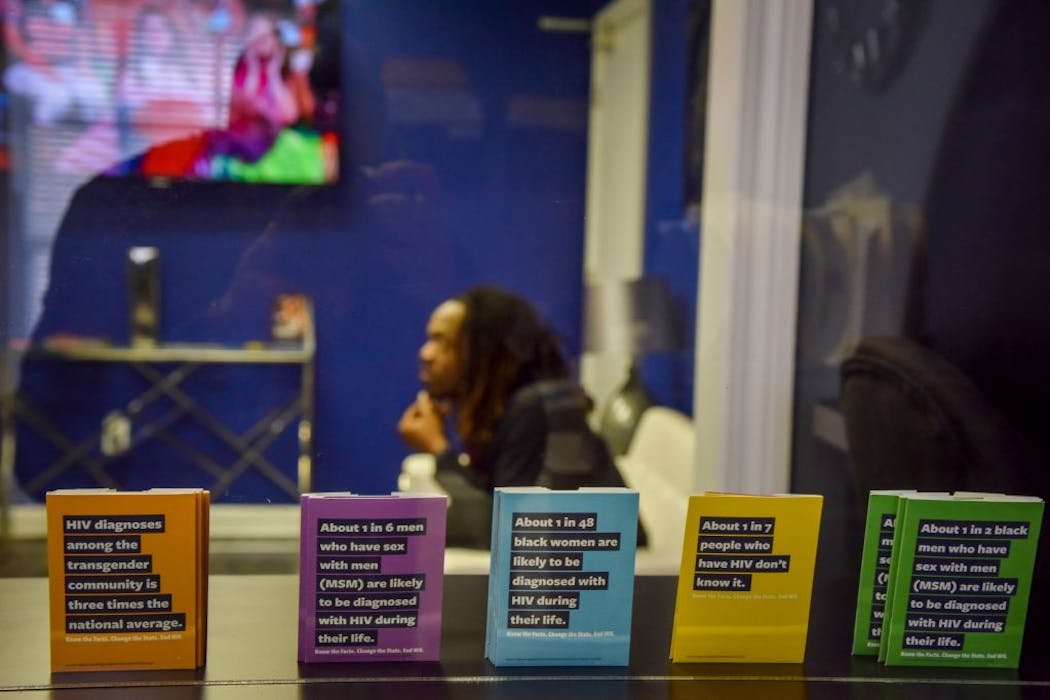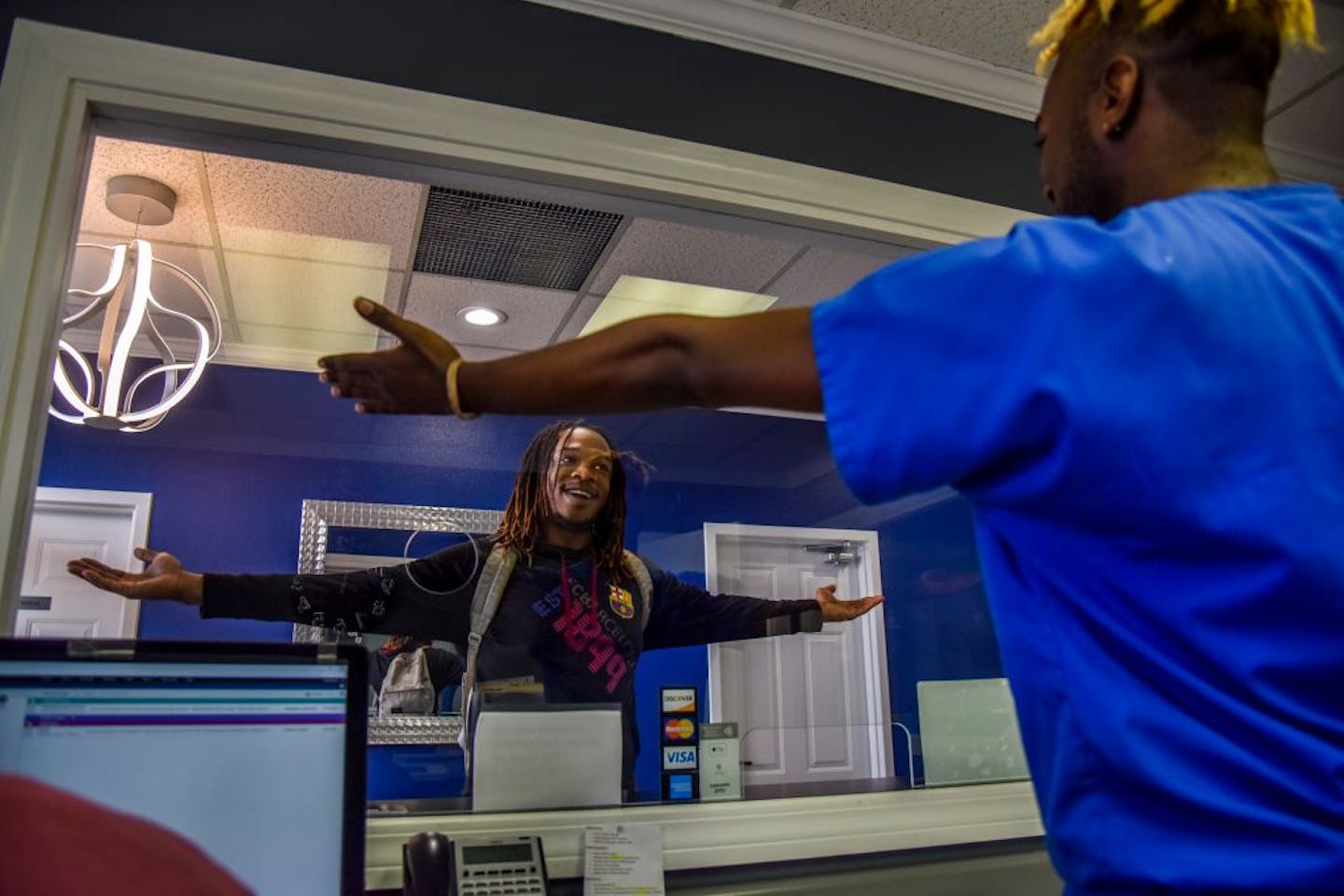
The American South has the highest HIV rates in the country, accounting for more than half of new HIV diagnoses nationwide in 2023. This is despite growing availability of a highly effective HIV prevention medication that has made it possible to live a long, healthy life with this once fatal disease.
This medication – called preexposure prophylaxis, or PrEP – reduces the risk of HIV transmission by over 99% when taken as prescribed. Yet, in Southern cities such as Jackson, Mississippi, and Memphis, Tennessee, one of the most vulnerable populations – Black men who have sex with men – are rarely using it, with fewer than 1 in 5 who are eligible taking the drug.
The Trump administration has previously frozen and proposed more cuts to HIV prevention programs in the U.S. And although the administration has restored some of the federal webpages and datasets it took down in January 2025, it is unclear what information remains missing or has changed. Communities in the South that already face the highest burden of infection will feel the greatest effects of changing public health priorities.
In my work as a public health researcher, I have spent years studying HIV prevention and the social determinants of health in the Deep South. Through interviews with health care providers and Black patients in major Southern cities, what I learned was that a powerful clash between culture and public health plays a significant role in why effective medical treatments are still failing to reach those who need it most. I call this tension the Southern paradox – where medical solutions exist but systemic forces block access.
The stories of these clinicians and patients in the South weren’t simply about a pill: They were about trust, identity, family and faith. And their words highlighted a complex web of emotions and experiences that often go unaddressed in standard health messaging.
Southern culture and sexual health
In my recent study, I interviewed 12 people in Jackson, Memphis, New Orleans and Atlanta: eight Black men who have sex with men, along with four health care providers. Three of these providers also identified as men who have sex with men.
Many participants reported that physical access to PrEP wasn’t the issue. Instead, what stood in the way was far more personal and deeply embedded in their environment.
“In church, you’re taught to love your neighbor, but there’s always an asterisk when it comes to who you love,” one participant from Jackson told me. “If you’re gay, you’re either ignored or silently judged.”
Nearly all participants described the South as a place deeply shaped by conservative values, especially those rooted in religion and traditional family structures. The Black church emerged as both a protective factor and a challenge. While offering vital community support, it also often reinforced stigma around homosexuality and discouraged open conversations about sexual health.
One participant from New Orleans shared that he heard about PrEP from his health care provider and his friends, while another from Atlanta recalled learning about PrEP during his annual physical. Despite repeatedly being exposed to information about PrEP, both described hesitation about starting treatment. One worried about potential stigma if others discovered he was taking it, while the other questioned whether he “really needed” it. Ultimately, neither had started PrEP.
In many of these communities, sex education in schools is still focused on abstinence and often excludes LGBTQ+ topics entirely. “You grow up not hearing anything about gay sex or HIV,” one man from Memphis said. “So, when you get older, it’s like starting from scratch.”
Even decisions around condom use were heavily shaped by cultural norms. Men described relying on partner trust, age or perceived cleanliness rather than research-based ways to reduce the risk of HIV.
This absence of comprehensive, inclusive sex education leaves many vulnerable to misinformation and, ultimately, to preventable infections.
Trust is the real barrier
One of the most striking findings from these conversations was the deep mistrust that many Black men who have sex with men feel toward the health care system.
“It’s hard to find affirming care for people in the queer community,” said one Memphis-based health provider. Others talked about fears of being “outed” through their insurance, especially if they were still on a family health plan.
A Jackson-based participant confided, “Some people avoid taking [PrEP] because for each prescription you are required to be evaluated. Some people don’t want the follow-up or the screening.” Another noted how fear of both outright and subtle judgment during medical appointments made it easier to avoid health care altogether.

Systemic racism compounds these concerns. For many Black men, historical and ongoing experiences of discrimination, including rushed visits, lack of empathy, misdiagnoses and even being denied care altogether have built a lasting sense of caution.
Even when resources like PrEP are available, these treatments often feel inaccessible to Black men because they do not trust the system offering them.
Social networks step in
Thankfully, these conversations also uncovered moments of hope.
Many participants learned about PrEP from peers. “We talk about it regularly,” said one participant in Jackson. “I have friends who work in public health, along with friends who are taking the medication.”
In the South, where community ties often serve as critical safety nets, these social networks can sometimes provide more trusted health information than clinics or campaigns. Informal conversations in group chats, at house parties or during community gatherings often serve as powerful platforms for health promotion.
One provider in Atlanta said he intentionally shared his own experiences with PrEP to reduce stigma. “I have a little soreness,” he said with a smile, referring to a recent injection. “Then I tell everyone, ‘Yup, I just got mine.’ The casualness of that comment made a difference: It made PrEP feel normal, relatable, something for ‘us,’ not something done to ‘them.’”
These social exchanges, rooted in trust and shared experience, frequently did more to shift attitudes than traditional public health campaigns. As one participant put it, “I trust my friends more than those ads. If they’re taking it and it works for them, that means something to me.”
Making PrEP culturally relevant
What these conversations show is that for PrEP to work in the South, access to treatment is only part of the equation. Building trust, cultural affirmation and community-led education are equally critical.
Public health messages that go beyond medical facts and address the emotional, spiritual and social dimensions of health are more likely to build lasting engagement with HIV prevention. This includes investing in Black, LGBTQ+-affirming health care providers who reflect the communities they serve. It also means integrating discussions of sexual health into everyday conversations at barbershops, churches and community centers, not just in clinics.
Public health officials and clinicians can explore alternative treatment delivery methods that address privacy concerns, such as telehealth PrEP programs, discreet mail-order services and community-based distribution points. These can make PrEP easier to access and reduce the stigma associated with clinic visits.
Most importantly, valuing the knowledge already circulating within communities and supporting peer educators as legitimate public health messengers can strengthen credibility, normalize PrEP and empower people to take charge of their health.
In the battle against HIV in the South, culture is not just a barrier. It can also be the solution. I believe that when care is offered in a way that honors people’s identities, experiences and values, it becomes not just accessible but empowering.
This article is republished from The Conversation, a nonprofit, independent news organization bringing you facts and trustworthy analysis to help you make sense of our complex world. It was written by: Brandon Nabors, University of Mississippi
Read more:
- Half of Black gay men will be diagnosed with HIV, despite highly effective preventive treatments − why?
- Mpox, AIDS and COVID-19 show the challenges of targeting public health messaging to specific groups without causing stigma
- Zombies, jiangshi, draugrs, revenants − monster lore is filled with metaphors for public health
Brandon Nabors does not work for, consult, own shares in or receive funding from any company or organization that would benefit from this article, and has disclosed no relevant affiliations beyond their academic appointment.


 The Conversation
The Conversation
 Health Digest
Health Digest Associated Press US and World News Video
Associated Press US and World News Video Raw Story
Raw Story New York Post
New York Post Political Wire
Political Wire The Cut
The Cut Democrat and Chronicle
Democrat and Chronicle The Baltimore Sun
The Baltimore Sun